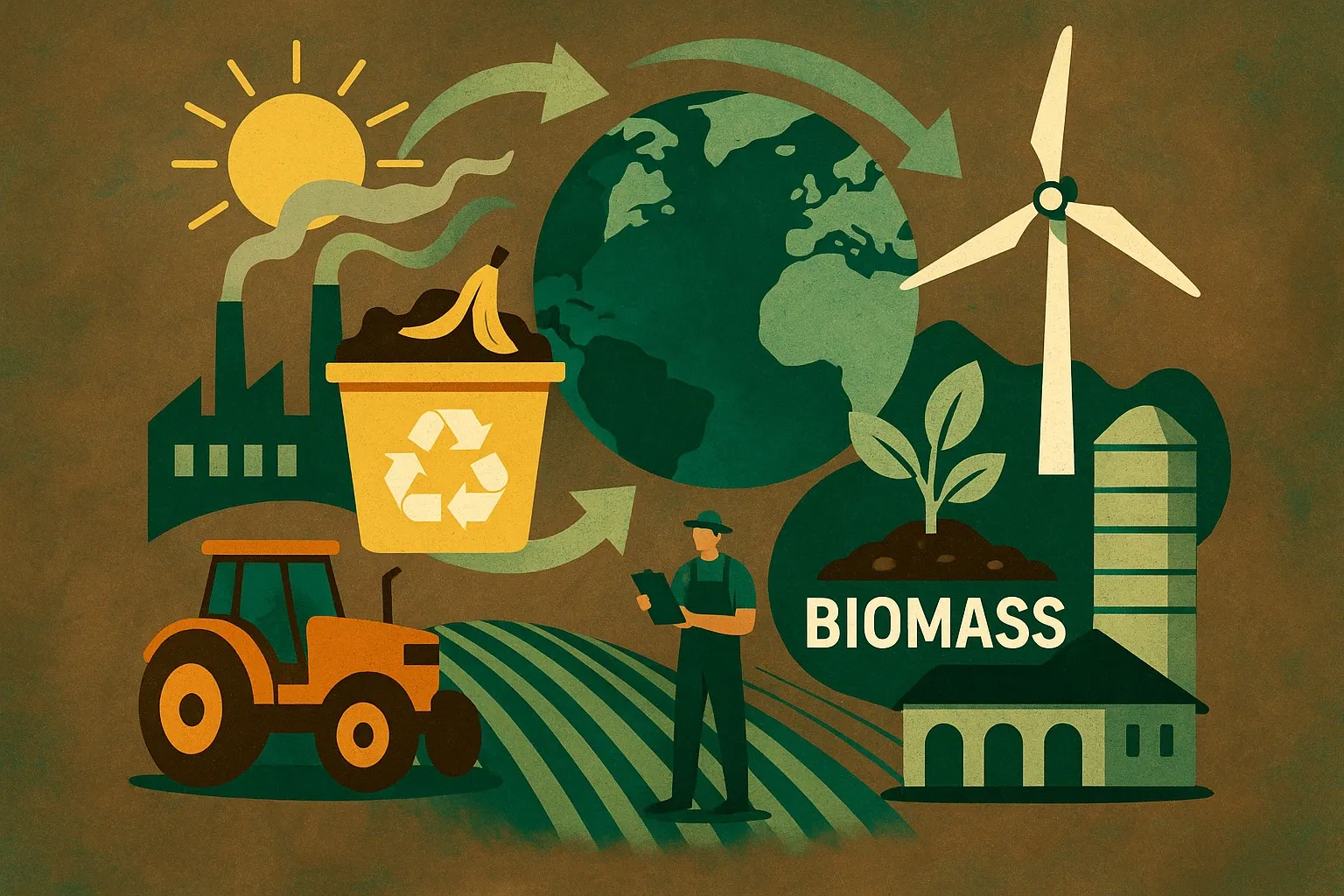+90 224 504 28 12 (TR)
Üçevler Mahallesi İzmir Yolu Cadde No:241/C Blok Westpoint D:32 Nilüfer, Bursa, 16120

In response to Europe’s growing population and the rising demands for energy and waste management, there is an urgent need to find sustainable solutions to reduce waste disposal and greenhouse gas emissions. One highly promising solution lies in the production of renewable energy from biomass, particularly the organic fraction of municipal solid waste (MSW) and agricultural residues. Biomass energy not only supports the EU’s renewable energy targets but also contributes to rural development by creating employment opportunities and increasing income. Despite its potential, biomass energy is still underutilized due to technological and economic barriers. The DESUWOW project was conceived to address this gap by fostering professional skills for the innovative reuse of urban and organic waste in agriculture and energy production.
PROJECT PROGRAMME
DESUWOW was funded under the Erasmus+ Programme, KA202 – Strategic Partnerships for Vocational Education and Training. The project was implemented over a 24-month period, starting in September 2020 and concluding in August 2022. The project was coordinated by Across Atlantic Development Ltd (UK), with partners from Türkiye, Belgium, Bulgaria, and Portugal.
PROJECT AIM
The main aim of DESUWOW was to develop innovative vocational training to equip professionals with the skills and competencies required for utilizing biomass and waste materials in sustainable energy production and agricultural applications. By fostering these skills, the project sought to contribute to the EU’s renewable energy goals, promote environmental sustainability, and support rural development and employment.
PROJECT OBJECTIVES
The project had several key objectives: to identify and analyze the needs and competencies required for biomass energy applications; to develop an innovative training programme and e-learning content; to implement pilot trials; to raise awareness about the reuse of waste; to promote innovation and entrepreneurship in rural areas; and to foster environmental awareness. Ultimately, the project aimed to create a network of trained professionals who could contribute to cleaner agricultural practices and climate goals.
TARGET GROUP
The project primarily targeted VET professionals, trainers, farmers, agricultural advisors, energy suppliers, municipal authorities, and rural entrepreneurs across the partner countries. Additionally, university students in relevant fields and stakeholders in environmental sustainability were engaged to ensure the broader dissemination and impact of the project outcomes.
PROJECT ACTIVITIES
DESUWOW carried out a comprehensive set of activities, including the development of a modern Training Kit and Handbook on biomass energy and waste reuse; pilot testing of e-learning content; and organization of workshops and dissemination events in each partner country. The project’s online platform attracted thousands of users and served as a hub for sharing knowledge and fostering European-wide collaboration. Additionally, the project facilitated local networking among experts, and published research and practical guides to support the transfer of innovation in the sector. The project also organized transnational project meetings to ensure strong partnership collaboration and quality implementation.
For more information about the project and its results, please visit the project website.https://desuwow.com